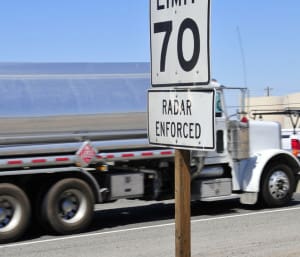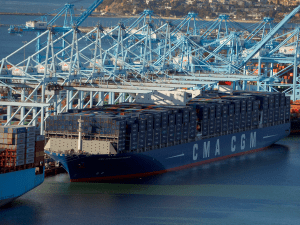 Yesterday was St. Patrick’s Day, a fun holiday where people everywhere either stretch their lineage to show that they are Irish, or at the very least, pretend to be Irish for the day. With such a large celebration, Americans this year spent an estimated $4.4 billion on St. Patrick’s Day. The National Retail Federation (NRF) estimates that more than 125 million Americans are likely to celebrate the Irish cultural holiday this year, with each person expected to spend $35.37 on average as part of that celebration. This includes sales of alcohol (bars and liquor stores), green clothing, St. Patrick’s decorations, and specialty foods (think corned beef and cabbage), among others. While $4.4 billion is an incredible amount of money to spend on the yearly holiday, it actually represents a drop from the $4.8 billion spent last year.
Yesterday was St. Patrick’s Day, a fun holiday where people everywhere either stretch their lineage to show that they are Irish, or at the very least, pretend to be Irish for the day. With such a large celebration, Americans this year spent an estimated $4.4 billion on St. Patrick’s Day. The National Retail Federation (NRF) estimates that more than 125 million Americans are likely to celebrate the Irish cultural holiday this year, with each person expected to spend $35.37 on average as part of that celebration. This includes sales of alcohol (bars and liquor stores), green clothing, St. Patrick’s decorations, and specialty foods (think corned beef and cabbage), among others. While $4.4 billion is an incredible amount of money to spend on the yearly holiday, it actually represents a drop from the $4.8 billion spent last year.
And now, on to the news.
- DOT announces further delays in publication of speed limiter, CDL clearinghouse rules
- FedEx wants online retailers to pay more for delivery
- Instacart in the news:
- Shipping companies join Prince William bid to shut wildlife trafficking routes
- Container Lines Reap Benefits of Megaships
- Maersk sees savings in using drones at sea
 According to the Department of Transportation, the publication dates of two trucking regulations have been delayed again. The delayed rules include a proposal to require speed limiters and one to develop a database of truckers who have failed a drug or alcohol test. The speed limiter regulation was initially set to publish on March 15, but has been pushed back until at least April 22. The rule would require a device to measure and limit the speed on all trucks weighing more than 27,000 pounds. The proposed rule, a joint effort from FMCSA and another DOT agency, has been stuck in the White House’s Office of Management and Budget since May 2015. It’s reasonable to look at the April 22 publication date as optimistic at best based on how long this has already dragged out.
According to the Department of Transportation, the publication dates of two trucking regulations have been delayed again. The delayed rules include a proposal to require speed limiters and one to develop a database of truckers who have failed a drug or alcohol test. The speed limiter regulation was initially set to publish on March 15, but has been pushed back until at least April 22. The rule would require a device to measure and limit the speed on all trucks weighing more than 27,000 pounds. The proposed rule, a joint effort from FMCSA and another DOT agency, has been stuck in the White House’s Office of Management and Budget since May 2015. It’s reasonable to look at the April 22 publication date as optimistic at best based on how long this has already dragged out.
 FedEx Corp. executives said retailers should be paying more for shipments to help offset the cost of expanding its network to meet the growing demands of e-commerce. FedEx has increased its capital spending to $4.8 billion, with the largest increase in its division that handles the ground operations of its e-commerce business. The company has said that expanding its delivery network for e-commerce is incredibly expensive. As a result, FedEx expects retailers to pick up the additional costs, as otherwise, the company will get no return on its expanded network.
FedEx Corp. executives said retailers should be paying more for shipments to help offset the cost of expanding its network to meet the growing demands of e-commerce. FedEx has increased its capital spending to $4.8 billion, with the largest increase in its division that handles the ground operations of its e-commerce business. The company has said that expanding its delivery network for e-commerce is incredibly expensive. As a result, FedEx expects retailers to pick up the additional costs, as otherwise, the company will get no return on its expanded network.
 Grocery-delivery service Instacart has signed on with Giant Food for delivery in the Washington market, although the Giant deliveries by Instacart are limited only to the District. Giant already works with Peapod for home delivery, but indicates that the new partnership will not impact Peapod deliveries. Giant will evaluate the pilot with Instacart over time to determine how well it complements its current online ordering. With Instacart’s growing success, and partnership with Whole Foods and Safeway, this could be a legitimate threat to Peapod’s business.
Grocery-delivery service Instacart has signed on with Giant Food for delivery in the Washington market, although the Giant deliveries by Instacart are limited only to the District. Giant already works with Peapod for home delivery, but indicates that the new partnership will not impact Peapod deliveries. Giant will evaluate the pilot with Instacart over time to determine how well it complements its current online ordering. With Instacart’s growing success, and partnership with Whole Foods and Safeway, this could be a legitimate threat to Peapod’s business.
Instacart is also working hard to keep delivery fees low. The key? Passing along delivery fees to consumer companies. The grocery delivery startup is working with General Mills Inc., Nestlé SA, PepsiCo Inc., Unilever NV, and other consumer goods makers to cover the cost of delivery or provide other discounts when customers buy their products. For example, customers can find discounts from these companies when selecting products, which eases the strain of delivery fees. Also, in a recent ad, customers were promised free delivery if they spend $10 on Red Bull, as the fee would be absorbed by Red Bull. It is certainly an interesting approach to maintaining profitability as well as customer satisfaction.
 Shipping companies have joined forces with Prince William to shut down wildlife trafficking routes. The world’s largest shipping and airline companies, port operators and transport groups will commit to trying to shut down the main international wildlife trafficking routes. The initiative, to be signed by 40 organizations, is led by Prince William and backed by the world’s largest conservation groups including Conservation International and WWF. By sharing information on suspected traffickers, working with customs and enforcement authorities, training cargo staff on what to look out for and refusing to ship suspect cargos, they hope to strangle the $19 billion a year illegal wildlife trade which has brought populations of many endangered species including tigers and elephants to the brink of extinction.
Shipping companies have joined forces with Prince William to shut down wildlife trafficking routes. The world’s largest shipping and airline companies, port operators and transport groups will commit to trying to shut down the main international wildlife trafficking routes. The initiative, to be signed by 40 organizations, is led by Prince William and backed by the world’s largest conservation groups including Conservation International and WWF. By sharing information on suspected traffickers, working with customs and enforcement authorities, training cargo staff on what to look out for and refusing to ship suspect cargos, they hope to strangle the $19 billion a year illegal wildlife trade which has brought populations of many endangered species including tigers and elephants to the brink of extinction.
 According to Chris Welsh, secretary-general of the European-based Global Shippers Forum, giant megaships are increasing supply chain costs for everyone but the ocean carriers themselves. The growing size and number of container megaships is causing high costs and delays throughout the supply chain. Welsh noted that there are giant traffic jams of drayage trucks at the port of Hamburg, Europe’s third busiest port, the result of the average number of container moves per vessel increasing from 2,000 to 2,500 a few years ago to between 6,000 and 7,000 today. That increase in container moves per terminal stop also causes long unloading times in addition to the traffic woes and delays. Welsh also noted that while container lines can get a new megaship in about 18 months, it can take 10 years to complete a port expansion to accommodate the larger vessels.
According to Chris Welsh, secretary-general of the European-based Global Shippers Forum, giant megaships are increasing supply chain costs for everyone but the ocean carriers themselves. The growing size and number of container megaships is causing high costs and delays throughout the supply chain. Welsh noted that there are giant traffic jams of drayage trucks at the port of Hamburg, Europe’s third busiest port, the result of the average number of container moves per vessel increasing from 2,000 to 2,500 a few years ago to between 6,000 and 7,000 today. That increase in container moves per terminal stop also causes long unloading times in addition to the traffic woes and delays. Welsh also noted that while container lines can get a new megaship in about 18 months, it can take 10 years to complete a port expansion to accommodate the larger vessels.
A.P. Moller Maersk A/S, the world’s largest containership operator by capacity, is studying deploying drones aboard its giant vessels and at its port operations around the world in an effort to cut the cost of supplying ships at sea. The study is still in the early stages, but the shipping giant says it could save up to $9,000 per ship in annual operating costs by shuttling everything by drone. Considering Maersk Line, the company’s overseas cargo carrier unit, has over 600 vessels, that is over $5.5 million in operating cost savings. It will certainly be interesting to see if the maritime industry embraces the use of drones.
That’s all for this week. Enjoy the weekend, and the song of the week, If I Should Fall From Grace With God by the Pogues.

















[…] Friday, in my weekly news roundup, I mentioned that A.P. Moller Maersk A/S, the world’s largest containership operator by capacity, […]